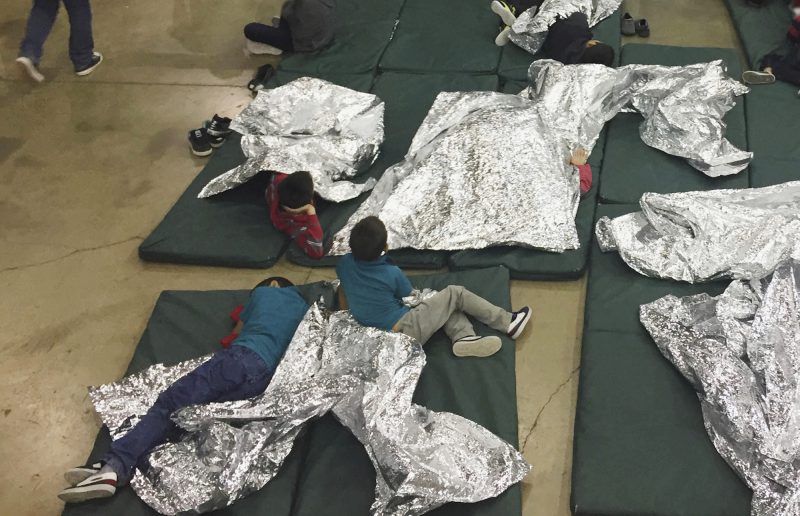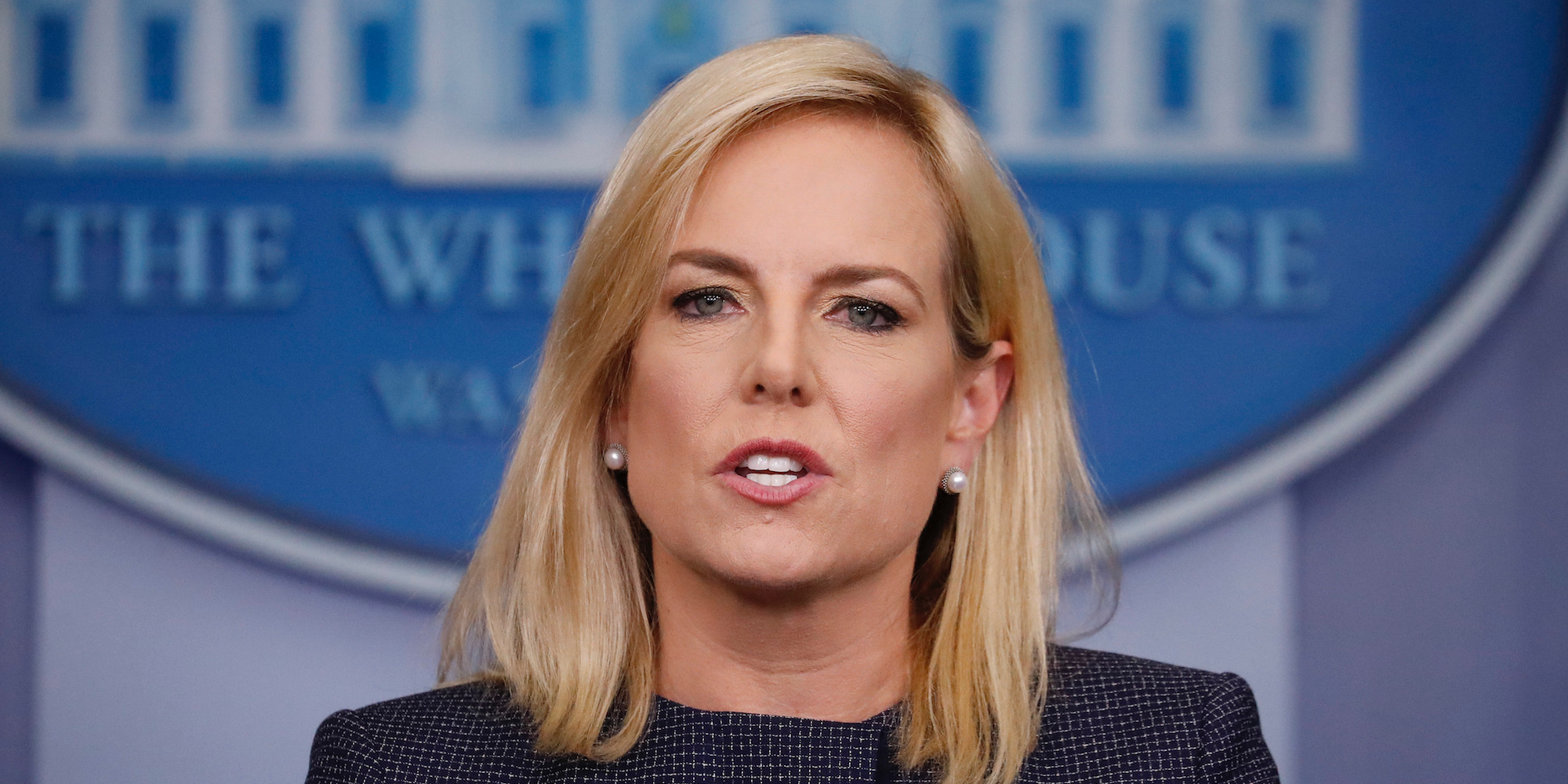- The Trump administration keeps falsely blaming its new family separation practice on current immigration law, and “loopholes” it says migrants are exploiting.
- Yet, as many critics of the Trump administration have pointed out, there is no law requiring migrant children be separated from their parents if they illegally cross the border.
- Nevertheless, the Trump administration has demanded Congress reform several laws or legal agreements that it believes would halt illegal immigration.
Homeland Security Secretary Kirstjen Nielsen defended the Trump administration’s new “zero-tolerance” policy at a combative press briefing with reporters on Monday, falsely blaming the controversial practice of separating migrant families at the border on Democrats and “loopholes” in the US immigration system.
“This entire crisis, just to be clear, is not new. It’s been occurring and expanded over many decades,” Nielsen said. “But currently, it is the exclusive product of loopholes in our federal immigration laws that prevent illegal immigrant minors and family members from being detained and removed to their home countries.”
Nielsen said, incorrectly, that the Trump administration is simply enforcing the law by separating the families, and is “no longer [exempting] entire classes of people who break the law.”
Yet, as many critics of the Trump administration have pointed out, there is no law requiring that migrant children be separated from their parents if they illegally cross the border. The current practice is in place because of the Trump administration’s zero-tolerance policy, which could be rescinded at any time.
Nevertheless, Nielsen said the onus is on Congress to close several legal "loopholes" as a means to stop illegal immigration, and therefore remove the need for the zero-tolerance policy.
Here are the "loopholes" the Trump administration keeps talking about:
The Flores settlement

The Flores settlement is a 1997 legal agreement struck by the Clinton administration following years of litigation on the treatment of children detained by immigration authorities. The settlement says the government is required to release immigrant children from detention without unnecessary delay - generally within 20 days - to parents, relatives, or licensed programs.
If those options are not immediately available for certain children, the government is then required to place them in the "least restrictive" setting appropriate for their ages.
The Trump administration has argued that the Flores settlement means children must be separated from their parents, since they cannot be held in custody alongside their parents who are facing criminal prosecution and deportation for crossing the border illegally.
It has also argued that the settlement prevents the timely deportation of unaccompanied children, allowing them to remain in the US out of custody, where they typically fail to attend court hearings regarding their asylum cases.
Amendments to the Flores settlement "would allow for family detention during the removal process," Nielsen said Monday. "We need Congress to fully fund our ability to hold families together through the immigration process."
The TVPRA
The William Wilberforce Trafficking Victims Protection Reauthorization Act was signed by President George W. Bush in 2008, and ensured that children who arrive at the US-Mexico border unaccompanied are "exempt from prompt return to their home country," unless those countries are Canada or Mexico.
Nielsen said Monday that the TVPRA incentivized the human-smuggling trade.
"This law encourages families to put children in the hands of smugglers to bring them alone on this dangerous trek northward," she said.
The Trump administration has sought several amendments to the TVPRA, arguing that many unaccompanied migrant children are not actually victims of human-trafficking, and therefore most of those children should be "promptly returned to their home countries."
The Trump administration wants Congress to limit the period in which unaccompanied children may apply for asylum to one year after their arrival in the US, and it wants to end "abuse" of a visa known as the Special Immigrant Juvenile (SIJ) visa, which allows unaccompanied children to obtain green cards if abuse, abandonment, or neglect prevents them from reunifying with one or both of their parents.
 Foto: Central American asylum seekers wait as U.S. Border Patrol agents take groups of them into custody on June 12, 2018 near McAllen, Texas. The families were then sent to a U.S. Customs and Border Protection (CBP) processing center for possible separation. source Getty Images/John Moore
Foto: Central American asylum seekers wait as U.S. Border Patrol agents take groups of them into custody on June 12, 2018 near McAllen, Texas. The families were then sent to a U.S. Customs and Border Protection (CBP) processing center for possible separation. source Getty Images/John Moore
Asylum reform
Nielsen also said the US asylum laws in general needed to be reformed to end "systemic abuse" and "fraud."
"Right now, our asylum system fails to assist asylum seekers who legitimately need it," she said. "We are a country of compassion, we are a country of heart. We must fix the system so that those who truly need asylum can in fact receive it."
The Trump administration has previously asked Congress to restrict asylum laws, but Attorney General Jeff Sessions made his own move last week when he ruled that asylum-seekers can no longer claim fears of domestic or gang violence as a means to enter the US.
Sessions called these two categories of crime "private violence," arguing that "the asylum statute does not provide redress for all misfortune."

